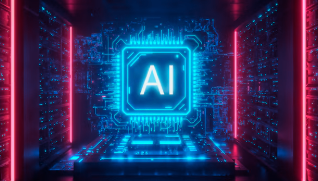$AI $ROBO #ArtificialIntelligence #JobMarket #StockMarket #TechTrends #EconomicImpact #Investing #Finance #Automation #FutureOfWork #Economy
Why Could a Poor August Jobs Report Boost AI Stocks? Discover the Upside!
In a twist of economic irony, a weak jobs report for August may actually spell good news for AI stocks. As companies increasingly turn to artificial intelligence solutions to drive efficiency and reduce costs, the landscape of employment and corporate profitability is shifting. This article explores the nuanced implications of this trend, particularly in light of recent job market data.
The Paradox of Progress: AI’s Role in Shaping Corporate Success
Historically, advancements in technology have had a dual-edged impact on the job market. On one hand, innovation leads to job creation in new sectors; on the other, it can result in significant job losses in traditional industries. The recent dip in employment figures suggests that companies are leveraging AI not just as a tool for innovation, but as a strategic asset to streamline operations and enhance profitability.
Navigating the Job Market: The AI Effect
The integration of AI into everyday business processes is not just a trend but a fundamental shift in how companies operate. As AI takes over routine tasks, the demand for certain job roles diminishes, leading to layoffs in sectors that AI can efficiently manage. However, this shift is also creating demand in tech-driven roles, particularly those that design, maintain, and improve AI systems. For job seekers, the message is clear: adapt and upskill to remain relevant in an evolving job landscape.
Investor Insights: Why AI Stocks Are Climbing
For investors, the implications of AI-driven efficiency are significant. As companies reduce labor costs and improve operational efficiency, their profitability often increases, making their stocks more attractive. This trend is reflected in the rising interest and investment in AI-focused companies and technologies. For insights on how this trend is influencing the stock market, explore our analysis on AI stocks and market trends.
The Broader Economic Impact of AI
While the immediate effects of AI on employment may cause concern, the long-term economic outlook is promising. Increased efficiency can lead to lower prices and better services for consumers, and the wealth generated by AI-driven industries can potentially be redistributed through taxation and welfare policies to benefit the broader society.
Conclusion: A Balanced View on AI and the Job Market
The evolution of AI presents both challenges and opportunities. For companies, it’s a chance to thrive in a competitive global market. For workers, it’s a call to adapt to the new demands of the job market. And for investors, AI stocks represent a growing sector with substantial potential for returns. As we navigate these changes, a balanced perspective is essential to maximizing the benefits of AI while mitigating its risks.
In conclusion, while the August jobs report might paint a grim picture for employment, it highlights the robust potential for AI in shaping future economic landscapes. Managing this transition thoughtfully will be key to ensuring that the benefits of AI innovations are felt across all sectors of society.











Comments are closed.